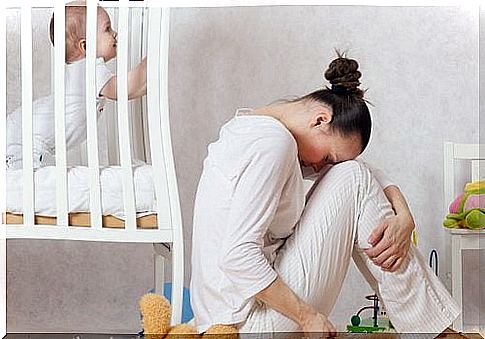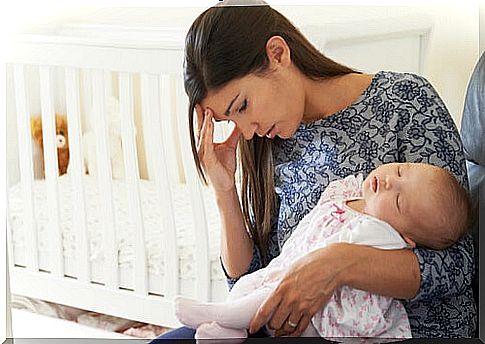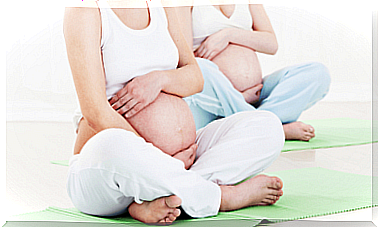How To Manage Postpartum Anxiety?

Postpartum anxiety and depression are conditions that often plague many women around the world. This is because worry and stress transcend healthy boundaries and end up causing more complicated conditions. In this vein, it is important to distinguish what is considered “normal” at this stage of the mother’s life.
We will start by saying that the concern that arises in a mother’s daily life is normal when it comes to something temporary. It is a fact based on reality that is no longer a cause for anguish when it is resolved. However, when it comes to postpartum anxiety , the worry continues even when the situation has been resolved.
Likewise, anxiety can change the perception of reality and appear persistently. It is these cases that require immediate measures that prevent the mother’s daily life from being stressful and unhealthy for her and the baby.
“Postpartum distress affects 50-80% of new mothers (50-80 in 100). Symptoms can appear at any time. Usually it originates due to the sudden hormonal change that affects the mother and the burden that she feels for being the mother of a baby that depends completely on her ”.
–Maternal and Infant Care Clinic–
Symptoms of postpartum anxiety

Symptoms typically appear between the first two weeks and one year after delivery. Signals such as:
- Difficulty focusing concentration on different activities.
- Fear of leaving home, alone or with the baby.
- Irritability, anger and impulsive reactions.
- Permanent fears for the health and safety of the baby.
- Nausea, vomiting, dizziness, breathing problems, muscle tension, and diarrhea.
- Difficulties falling asleep and poor appetite.
- Constant thoughts that something terrible will happen.
- Permanent tiredness and fatigue due to lack of rest.
What can be done if postpartum anxiety occurs?
- It is essential that the mother get enough rest while the baby sleeps, otherwise lack of sleep can affect the mother’s physical and mental health.
- Another important aspect is to inform the family and close relatives of the situation. This way they can be participants in the process and help dissipate unfounded fears.
- A mother with postpartum distress or anxiety should avoid asking for a lot of advice; especially when it comes to raising the baby, there will be very mixed opinions. As a consequence, the mother will not know which of all the recommendations to heed.
- It is advisable to limit contact with people who increase stress in women. Everyone will want to say what is best for the baby, but the mother’s instinct is the only correct answer.
- Allowing space for recreation and relaxation is essential. Although free time is restricted, it is necessary to spend a few minutes relaxing and having a proper diet.
- Substances such as caffeine, nicotine, and alcohol should be avoided. These stimulants can upset the nervous system and worsen stress and anxiety conditions.
- It is good to find strategies that bring peace. For example, doing physical activity, playing a board game, listening to music, or going for a walk. In this way, the emergency signals that anxiety sends to the whole body are deactivated and you can be more calm.
- Finally, you have to avoid anxiety triggers ; It is not the best time to watch violent TV shows or horror movies. It is also unwise to check the news of tragedy or any source that brings unrest and fuels stress.

Finally…
If you are a mother and have identified with these symptoms, or if you know a mother who may be suffering from postpartum anxiety, keep in mind that there are many organizations specialized in treating this condition. Some of them are in charge of providing 24/7 care to solve all doubts regarding maternity. If you have any questions, you can ask them.
Although it is difficult to face such a great responsibility, a life that depends completely on you, keep in mind that you are not alone and that there are many resources at your disposal.










